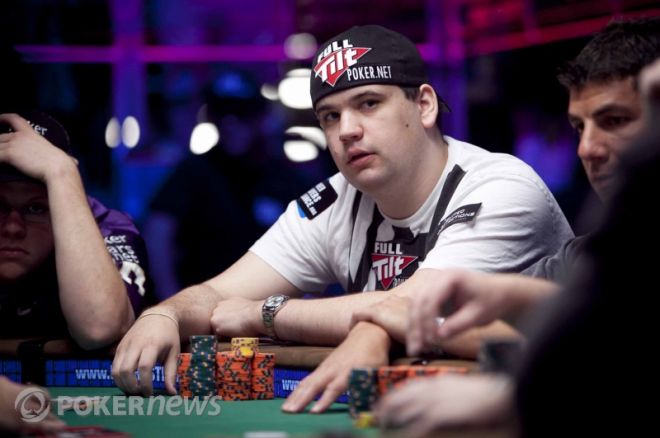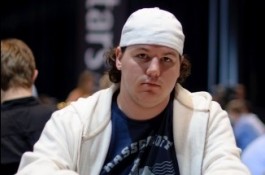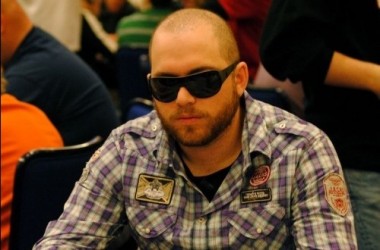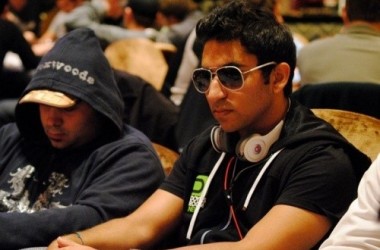General Guidelines on Small Pairs Preflop with Christian Harder

Christian Harder, also known as ��charder�� online, has accumulated around $2.9 million in online and live tournament winnings, and most recently, he had an amazing run at the 2010 World Series of Poker. He cashed seven times, including a 100th-place finish in the Main Event. With so many tournaments under his belt, he has had to deal with countless sticky situations and learned to do so with ease. Among tricky spots that novice poker players have trouble with is playing small pocket pairs. Harder sits down with PokerNews to talk about a few general guidelines on playing small pairs preflop in a tournament.
First, let's talk about early position, early in a tournament when stacks are 100 big blinds deep. Limp, raise, or fold? What goes into your decision making?
Well, early in tournaments, at most tables, I��d just raise. It depends on your table though. Against good, tight-aggressive players, small pocket pairs don��t play well when you��re out of position. Ideally, early in a tournament, you want to play versus as many players as possible with small pairs. A beginner at some tables may feel more comfortable limping, and that��s fine, unless your limps are getting raised a lot. Then it��s not a good idea. You should just raise or fold small pairs in early position if that��s the case.
In late position, early in tournaments, should you ever three-bet with small pairs?
Generally, I wouldn��t. As I said, you want to go to the flop with multiple players, and that will likely get it heads-up.
So how does this change as the stacks get more shallow, deeper in tournaments?
As the stacks get shallower and you get deeper in a tournament, you can no longer "set mine," as it��s freaking hard to hit a set! It becomes harder to turn a profit calling with small pairs, so you have to either fold them, or, at the right time, it��s a decent hand to three-bet as a bluff versus certain players.
What considerations do you need for knowing when it is profitable enough to set mine?
It depends on the tightness of the opener. The looser they are, the more big-blinds effective you need to call. This is because you have less implied odds because their preflop range is looser; therefore, they will miss the flop more often and give you less chips when you hit a set. Generally, you need to be about 40 big blinds effective assuming they are opening to three big blinds or fewer.
So at an aggressive three-bet happy table, should you be mostly folding small pairs in early position?
Yes, unless you��re prepared to four-bet them, but for the most part, yeah you should. Opening with the intention of four-betting can get you in some trouble [laughs].
Can you explain in more detail what types of players you would three-bet bluff against, and why small pairs are decent to do it with?
I��d three-bet aggressive players in position who aren��t call or four-bet happy or I would three-bet tighter players who will only continue with very big hands. Three-betting small pairs are decent to do it with because you have some showdown value if called. You have a pair after all! Plus, hitting a set in a reraised pot is very disguised. But in general, I��d rather three-bet a hand like ten-eight suited because it flops better and it��s easier to maneuver postflop.
What about three-betting from the blinds with small pairs? When is that an option?
For the mast part, it��s likely not a great idea because in the big blind, you can just call and it��s most likely just fine and profitable to do, and if you three-bet and get called, you��re out of position and it��s hard to play postflop.
That makes sense. They��re going to call a reraise probably pretty light in position and they're always going to have huge equity against your hand, but doesn't calling still put you in a bad situation too?
It does, but it depends on stack depth. If you��re deep, it��s a no brainer call. If you��re under 25 big blinds, and they are aggressive, you can just go all-in. But generally, if they��re going to open smallish, you��re getting such good odds preflop you can call.
When you are short stacked with a small pair, when is it right, if ever, to shove in early position?
With a small pair like pocket twos through sixes, I��d probably open shove in early position with up to 10 to 12 big blinds. I mean, it depends on your table. If you have a good image and aren��t going to get called at light, you can shove maybe up to 15 big blinds? Generally though, I��d only shove up to 10 to 12 big blinds with small pairs in early position.
In late position, I��ve been hearing pros talk about shoving with bigger stacks than usual with small pairs. Can you talk about why that is?
Well, in positions, like the cutoff or button, you can shove probably up to 20 big blinds with those hands just because there are fewer players behind. It��s a math equation. It��s hard to get a pair!
Also, with around 20 big blinds, if you raise to say three big blinds, it seems that people like to play back with a shove against those stacks.
Yeah, and you definitely don��t want to call your stack off in a spot like that with a small pair, so its probably better to just shove.
Work on your poker skills by signing up for an online poker account and be sure to follow us on Twitter for up-to-the-minute news.








